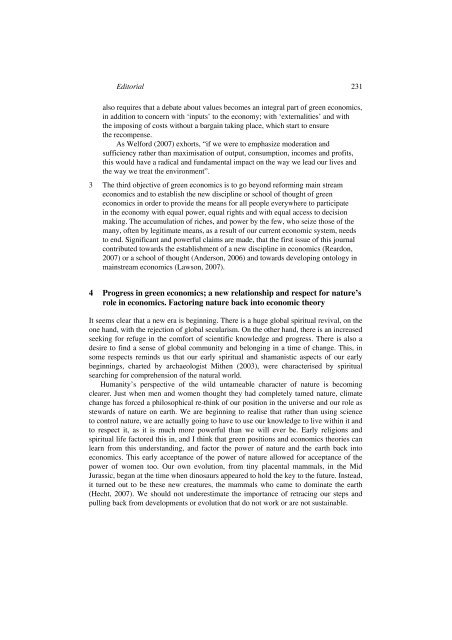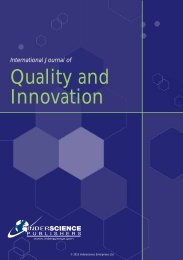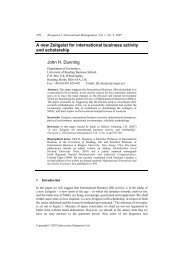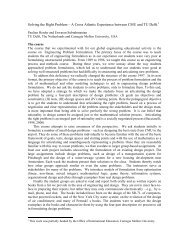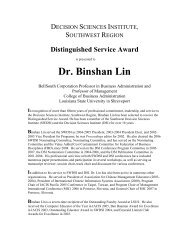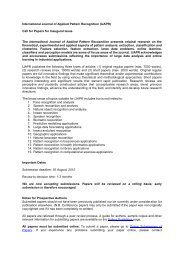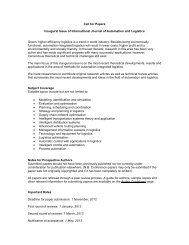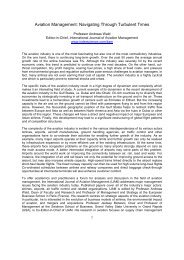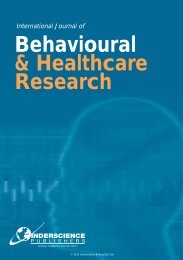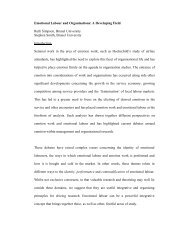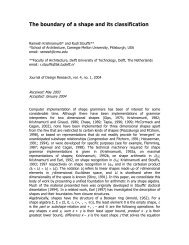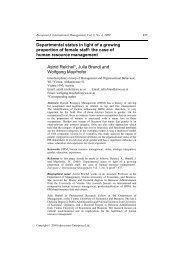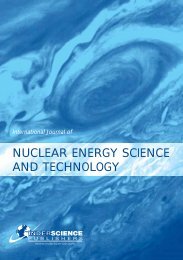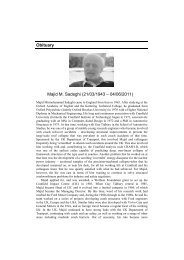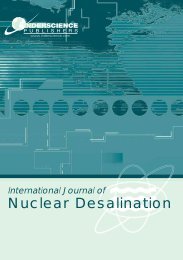Editorial: progress in Green Economics: ontology, concepts and ...
Editorial: progress in Green Economics: ontology, concepts and ...
Editorial: progress in Green Economics: ontology, concepts and ...
Create successful ePaper yourself
Turn your PDF publications into a flip-book with our unique Google optimized e-Paper software.
<strong>Editorial</strong> 231<br />
also requires that a debate about values becomes an <strong>in</strong>tegral part of green economics,<br />
<strong>in</strong> addition to concern with ‘<strong>in</strong>puts’ to the economy; with ‘externalities’ <strong>and</strong> with<br />
the impos<strong>in</strong>g of costs without a barga<strong>in</strong> tak<strong>in</strong>g place, which start to ensure<br />
the recompense.<br />
As Welford (2007) exhorts, “if we were to emphasize moderation <strong>and</strong><br />
sufficiency rather than maximisation of output, consumption, <strong>in</strong>comes <strong>and</strong> profits,<br />
this would have a radical <strong>and</strong> fundamental impact on the way we lead our lives <strong>and</strong><br />
the way we treat the environment”.<br />
3 The third objective of green economics is to go beyond reform<strong>in</strong>g ma<strong>in</strong> stream<br />
economics <strong>and</strong> to establish the new discipl<strong>in</strong>e or school of thought of green<br />
economics <strong>in</strong> order to provide the means for all people everywhere to participate<br />
<strong>in</strong> the economy with equal power, equal rights <strong>and</strong> with equal access to decision<br />
mak<strong>in</strong>g. The accumulation of riches, <strong>and</strong> power by the few, who seize those of the<br />
many, often by legitimate means, as a result of our current economic system, needs<br />
to end. Significant <strong>and</strong> powerful claims are made, that the first issue of this journal<br />
contributed towards the establishment of a new discipl<strong>in</strong>e <strong>in</strong> economics (Reardon,<br />
2007) or a school of thought (Anderson, 2006) <strong>and</strong> towards develop<strong>in</strong>g <strong>ontology</strong> <strong>in</strong><br />
ma<strong>in</strong>stream economics (Lawson, 2007).<br />
4 Progress <strong>in</strong> green economics; a new relationship <strong>and</strong> respect for nature’s<br />
role <strong>in</strong> economics. Factor<strong>in</strong>g nature back <strong>in</strong>to economic theory<br />
It seems clear that a new era is beg<strong>in</strong>n<strong>in</strong>g. There is a huge global spiritual revival, on the<br />
one h<strong>and</strong>, with the rejection of global secularism. On the other h<strong>and</strong>, there is an <strong>in</strong>creased<br />
seek<strong>in</strong>g for refuge <strong>in</strong> the comfort of scientific knowledge <strong>and</strong> <strong>progress</strong>. There is also a<br />
desire to f<strong>in</strong>d a sense of global community <strong>and</strong> belong<strong>in</strong>g <strong>in</strong> a time of change. This, <strong>in</strong><br />
some respects rem<strong>in</strong>ds us that our early spiritual <strong>and</strong> shamanistic aspects of our early<br />
beg<strong>in</strong>n<strong>in</strong>gs, charted by archaeologist Mithen (2003), were characterised by spiritual<br />
search<strong>in</strong>g for comprehension of the natural world.<br />
Humanity’s perspective of the wild untameable character of nature is becom<strong>in</strong>g<br />
clearer. Just when men <strong>and</strong> women thought they had completely tamed nature, climate<br />
change has forced a philosophical re-th<strong>in</strong>k of our position <strong>in</strong> the universe <strong>and</strong> our role as<br />
stewards of nature on earth. We are beg<strong>in</strong>n<strong>in</strong>g to realise that rather than us<strong>in</strong>g science<br />
to control nature, we are actually go<strong>in</strong>g to have to use our knowledge to live with<strong>in</strong> it <strong>and</strong><br />
to respect it, as it is much more powerful than we will ever be. Early religions <strong>and</strong><br />
spiritual life factored this <strong>in</strong>, <strong>and</strong> I th<strong>in</strong>k that green positions <strong>and</strong> economics theories can<br />
learn from this underst<strong>and</strong><strong>in</strong>g, <strong>and</strong> factor the power of nature <strong>and</strong> the earth back <strong>in</strong>to<br />
economics. This early acceptance of the power of nature allowed for acceptance of the<br />
power of women too. Our own evolution, from t<strong>in</strong>y placental mammals, <strong>in</strong> the Mid<br />
Jurassic, began at the time when d<strong>in</strong>osaurs appeared to hold the key to the future. Instead,<br />
it turned out to be these new creatures, the mammals who came to dom<strong>in</strong>ate the earth<br />
(Hecht, 2007). We should not underestimate the importance of retrac<strong>in</strong>g our steps <strong>and</strong><br />
pull<strong>in</strong>g back from developments or evolution that do not work or are not susta<strong>in</strong>able.


